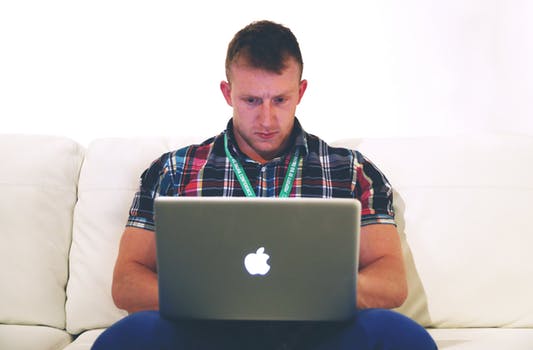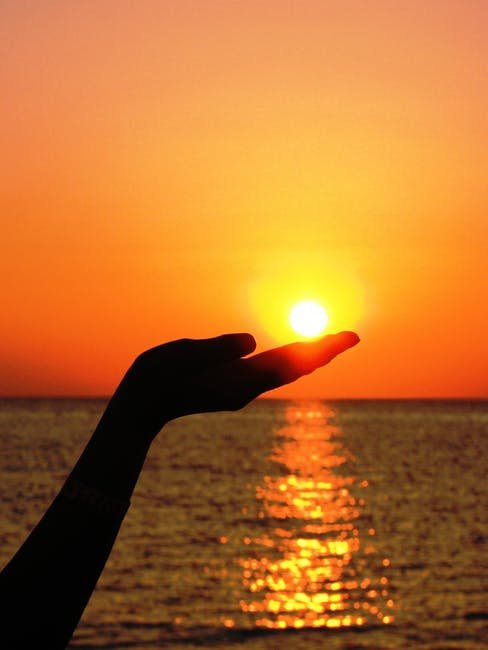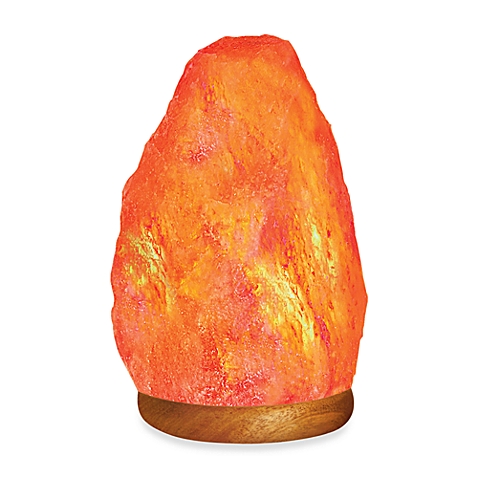Can't Sleep? Blame Your Computer!
If you have difficulty getting a good night's sleep, your computer and the blue wavelength light it emits may be the culprit.
Prior to electric lighting, people slept an average of 10 hours a night, but now many are lucky if they get seven hours of sleep. This is attributed in large part to the use of artificial lighting and electronic devices at night. The blue wavelength light emitted makes our brains think its daytime and alters our body chemistry accordingly. You might as well have a cup of coffee! This blue light signals your body that it's time to wake up! No wonder there are so many insomniacs out there!

There are a few simple things you can do to help resynchronize your body to the natural circadian rhythms of night and day and help lessen the effects of blue light at night.
GET SOME SUN
Sunlight is the major synchronizer of your body clock, which is composed of a group of cells in your brain called the suprachiasmatic nuclei (SCN). These nuclei synchronize to the light-dark cycle of your environment when certain light wavelengths reach your eyes. This in turn affects the various other biological clocks in your body, and those clocks then in turn synchronize with your master clock.
In order for your pineal gland to produce melatonin, you need at least 10 minutes of exposure to sunlight in the morning, followed by, ideally, at least an hour around noon. Then the ideal is to have only very low lighting, such as candlelight prior to bedtime. It's the sharp contrast between the daytime sunlight and the relative darkness in the evening that triggers melatonin production. In case you aren't familiar with it, melatonin is a naturally occurring hormone that helps you sleep deeply. It can be taken in supplement form, but its preferable for your body to produce its own.

AVOID BLUE LIGHT AT NIGHT
Exposure to bright or blue wavelength light after sundown suppresses the natural production of melatonin which would normally occur. This includes any artificial light, and light emitted by electronics such as your TV, computer, and other electronic screens. The blue light range (400 to 490 nm) can also cause photoreceptor damage in your eyes, but that's a topic for another time.
Avoid watching TV or using the computer/iphone for at least one hour before bedtime but preferably 2 or more hours if possible. Research shows that using an electronic device within one hour of bedtime can delay falling asleep for more than an hour. Another study found that exposure to typical room light before bedtime shortened the time of elevated melatonin levels by about 90 minutes. That means it may take an extra hour and a half after exposure to such lighting before you feel sleepy.
DON'T WANT TO SIT IN THE DARK?
This doesn't mean you have to sit around in the dark. Try a low-wattage bulb with yellow, orange or red light, which are far less stimulating. A Himalayan salt lamp provides a warm, rosy light that will not interfere with your melatonin production. They're very beautiful too and create a comforting atmosphere. You can purchase them on Amazon, Bed, Bath/Beyond, and many other retailers

GETFLUX
If you must use your smart phone or computer, install blue light-blocking software like f.lux. The program automatically alters the color temperature of your screen as the day goes on, pulling out the blue wavelengths as eveing falls. It's free to download and very simple to use. I've been using it for the last couple of years and it really helps.
![]()
https://justgetflux.com
If you prefer, get a pair of amber colored glasses that block blue light. Studies indicate that when wearing blue-blocking glasses, people produce as much melatonin as they do in dim light, even in a brightly lit room. They are also a good option if no one else in your household is on board with this and thinks you're nuts for wanting to dim the lights.
The Uvex model (S1933X) blue-blocking glasses are reasonably priced and available on Amazon.
MAKE YOUR BEDROOM AS DARK AS POSSIBLE
Exposure to even small amounts of light during sleep has been shown to suppress melatonin by more than 50 percent. Try blackout shades or a sleep mask and if you have an alarm clock with a blue or green light display, swap it out for one with red or amber light, or just cover it up.
NIGHTTIME IS SACRED TIME
Turning off external distractions and stimulating activity in the evening just makes sense. In Traditional Chinese Medical Theory/TCM, the night is a yin time during which we should slow down our pace and turn inwards. Evening is the perfect time for prayer, journal or poetry writing, inspirational reading, or having quiet time connecting with our loved ones.
It's time to refresh not only our bodies, but also our souls and nothing on the internet is worth sacrificing that! So let's make the most of it!

REFERENCES
http://www.healthline.com/nutrition/block-blue-light-to-sleep-better
https://www.ncbi.nlm.nih.gov/pmc/articles/PMC4734149/
https://www.ncbi.nlm.nih.gov/pmc/articles/PMC3047226/
https://www.ncbi.nlm.nih.gov/pubmed/24918238
https://www.ncbi.nlm.nih.gov/pubmed/28042611
Fantastic article @eyeofthestorm. Lots of really good info that most people are unaware of but should definitely know. I turn all of my devices off at night but still struggle with insomnia. I think it has something to do with living in a major city and a 'SMART' one at that! :( Moving soon though! :)
Thanks tonyr! It's definitely a good idea to unplug the wifi and turn off mobile phones, etc before bed. I want no part of any so-called SMART technology--I don't want any devices that are 'smarter' than me --lol! I hope to move in the not-too-distant future, preferably to the countryside where you can still see a few stars at night. Best of luck with your upcoming move!
Wonderful article @eyeofthestorm! I've actually bought the yellow light bulbs. I read that for outside lighting, the yellow lights draw fewer insects. Now, I'll add one even to my lamp in the bedroom. I spend a lot of time on the computer here and on other sites, and this was very informative and helpful. Thanks for sharing these wonderful tips, my friend. God bless.
You're so very welcome livingwaters! God bless you too!
@eyeofthestorm you wrote an excellent article about sleep. I learned a lot, thank-you. I will have to start thinking about the blue lights that can affect sleep with its stimulating ability. Good to know. I have a Himalayan salt candle holder that I use with small flat candles that give off a wonderful yellow orange soft glow. It is very relaxing and wonderful. Thank-you for the very interesting article. I know you put a lot of effort into it so it is much appreciated. I hope you are well and very, very happy! Take care!!! :D
Thank you for your kind words cabbagepatch. I have a couple of salt lamps as well---I love them. They also are supposed to be beneficial in other ways, such as by releasing negative ions into the air. I hope you are very well and happy too!